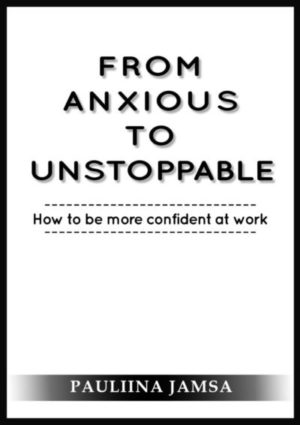I feel stuck.
I was standing in the morning rush hour tube, lost in my thoughts, having an existential crisis.
What am I doing with my life? Is THIS it?
Few years back I had got comfortable in my role and stopped growing. I went to the office, did my routine tasks and worked overtime to accomplish … nothing particularly life-changing.
I looked around and saw that my fellow passengers looked as miserable as I probably did.
This is not me. I need to change.
What NOT to do if you are planning your next career move
As a part of my personal failure challenge, I want to share with you mistakes I have been doing when planning my next career moves during the past 15 or so years, so you can avoid doing them yourself:
1. Ruling out the roles in your existing company
People tend to leave managers, not companies. If the real reason why you are planning your next career move is your boss or supervisor, not the role or company itself, have a look at first what else is available in your company.
Mistake I did was to scrap it all and start from scratch in a new company, but there are real advantages in staying: it’s less stressful to start a new role, when you already have connections and know the company’s culture, silent rules and processes.
2. Not knowing my value
As a rookie I was highly conscious of my lack of expertise and experience – and it showed in interviews and performance reviews. However, once I realised that my winning card was fresh perspective, digital knowledge and high potential, that’s what I focused on. #win
But how can I compete with millennials if I’m over 45, you ask?
Yes, maybe the new generation is more digital and social-savvy, but you have the experience and ability to see the big picture and manage people while we millennials can run around often like over-enthusiastic headless chickens 😉
That’s why personal branding is hugely important, because once you are positioned based on the value you bring, you don’t often even have to look for opportunities – they come to you.
3. Not having a coach or a mentor
Ok, so I had an existential crisis and needed a change … but remained stuck for weeks. Why?
When you don’t know where to start, it can get very overwhelming.
I regret not having a coach or mentor helping me to focus and find clarity – having someone who not only helps you set up a realistic goal and asks you good questions, but holds you accountable and encourages you is priceless.
4. Basing my search on job description, not the company or industry
When looking through possible new roles, I was only choosing roles with a job description that matched my skills and what I wanted to do.
But hey – when has the job description ever reflected what actually is required in this massively changing environment? Mine surely never has.
Instead, look at the companies you’d love to work for, whether it’s for their industry, values, innovation or company culture. Maybe the job description is not a perfect match, but when you are passionate about working there, you either get the job or are considered for the next available role.
5. Not interviewing the interviewer
I was always so focused on impressing the interviewer that I forgot to investigate the essential: is this company and role really for me?
We often focus purely on title and salary and underestimate how important other areas are for us personally such as freedom, flexibility and company culture.
For example:
- Ask how flexible they are with working hours and location. What would happen if your child got sick? Are flexible working hours or working one day at home a possibility?
- If they are your direct manager, ask what their preferred way of working is. This way you can filter out micro-managing or over-controlling people that would make your life miserable.
- Ask why they work for the company and what the best thing about their role is. If they seem uncomfortable or avoid the question, there’s probably something you should be aware of. If their eyes light up, you can see that the company culture is positive.
But don’t they get annoyed with these questions? Well, is it really worth going through all the hassle to change your current job only to realise in 6 months time that you’re not happy in the new place?
6. Thinking corporate role is the only option we have
I’m an old millennial – I used to believe in job security and long term corporate career … until it all came crashing down: I saw industries dying, giants falling and the effect redundancies and restructuring had on my family and friends.
I still aimed for corporate route, but hey – long gone are the days when a long term corporate career was the only option we have. In fact it’s becoming less and less feasible option.
Is this negative? No, the contrary 🙂
When you are planning your next career move, remember that with the latest tech we all – not just millennials – have the freedom to make money online, work anywhere, on our own time. We have a choice between working for someone or being our own boss.
Heck, you could even pursue your passion as a private chef in Rhodes while doing work online as a lucrative side hustle!
The abundance of options gives us freedom and higher negotiation power. See, for work that can’t be replaced by artificial intelligence, companies need top employees more than you need them.
So, my friend: With all the options that you have front of you, which one of them would make your heart sing? 🙂
Best of luck,
Pauliina
Ps. If you found this helpful in anyway, please do like this or share your thoughts in comments 🙂 Would really appreciate it!
[This is part of my challenge to share one personal failure per week to help you see you’re not alone: we all fail. I hope this will help you to get unstuck and succeed in life 🙂 ]
Related: 7 Painful lessons I learned in agile project management
Related: 4 Painful lessons I learned in project reviews
Related: How I screwed up my work-life balance (Part 1)

